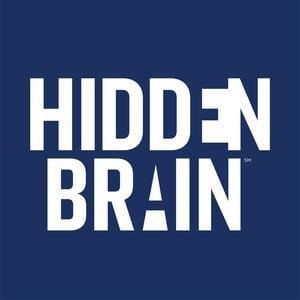
In this episode of “The Rich Roll Podcast,” Rich Roll interviews Brad Stulberg, author of “Master of Change.” They discuss the importance of embracing change, cultivating resilience, and adapting to an ever-changing world. Stulberg shares insights on rugged flexibility, tragic optimism, and the neuroscience of expectations.
In “Master of Change,” Brad Stulberg explores the importance of embracing change and cultivating resilience in an ever-changing world. He introduces the concept of rugged flexibility, which involves adapting to changing circumstances while staying true to your core values and principles. Stulberg also discusses tragic optimism, the belief that even in the face of adversity and suffering, there is still hope and meaning to be found. He emphasizes the importance of adopting a flexible identity over time to navigate big life changes successfully and finding stability within change by focusing on core values and principles.
Stulberg delves into the neuroscience of expectations and the impact of change on our brains. He explains the concepts of homeostasis and alostasis, highlighting the importance of adapting to change rather than resisting it. Stulberg compares personal evolution and growth to the cycle of order, disorder, and reorder seen in evolution at the species level. He challenges the notion that things should remain static and emphasizes the necessity of embracing change for growth and evolution.
Stulberg discusses the mindset and actions needed to be flexible and adapt to change. He encourages listeners to embrace change as a catalyst for growth and evolution. Stulberg introduces the concept of the inescapability trigger, which involves accepting that something is completely inescapable to allow potential for change. He explains that change occurs when the pain of the current condition outweighs the fear of change. Stulberg acknowledges that disorder or disorientation can be challenging but necessary for personal growth and transformation.
Stulberg explores the idea of cultivating a flexible identity and the benefits it brings. He emphasizes the importance of getting comfortable with impermanence and transformation. Stulberg suggests maintaining agency and control while still being flexible and adaptable. He cautions against falling into the trap of thinking in two extremes: stubbornness or complete surrender. Stulberg highlights cross-cultural differences in how we relate to change, with Westerners often identifying with personality traits while Easterners find it laughable.
Stulberg discusses the challenges of change for identity and the importance of resilience. He acknowledges that change can lead to depression, anxiety, and addictive behaviors. Stulberg emphasizes the need for self-complexity, having different rooms for different identities, to be resilient to change. He explains that individuals with higher levels of self-complexity tend to be more resilient. Stulberg also explores the pursuit of mastery and the potential trade-offs it entails, such as focusing on one area at the expense of other aspects of life.
In this episode, Brad Stulberg shares insights from his book “Master of Change” and discusses the importance of embracing change, cultivating resilience, and adapting to an ever-changing world. He emphasizes the concepts of rugged flexibility, tragic optimism, and the neuroscience of expectations. Stulberg encourages listeners to embrace change for growth and evolution, while also maintaining core values and principles. He highlights the importance of self-complexity, flexibility in identity, and the pursuit of mastery. Overall, Stulberg provides valuable insights and practical advice for navigating change and finding resilience in the face of life’s challenges.